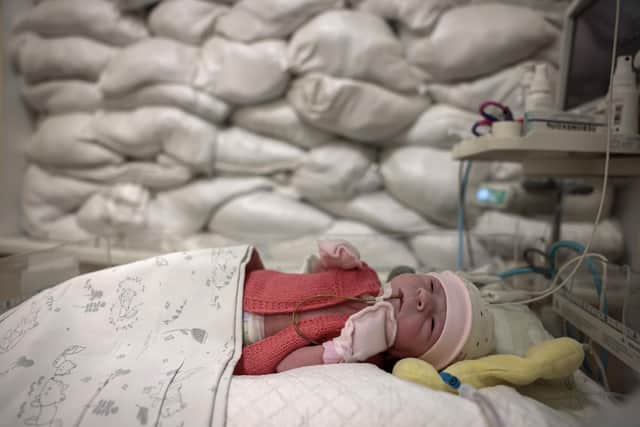Russia's war on Ukraine: As Vladimir Putin tries to bomb population into submission, refugees who returned home are being forced to leave again – Steve Cardownie
However, after a couple of months, she felt it was safe to return to Ukraine to work in the small business she ran with her husband. Little did she know that Moscow was planning a desperate attack on the country’s civilian infrastructure in an attempt to force the population into submission.
As temperatures plummet, Russia has adopted the nefarious tactic of hitting Ukraine’s power plants with missiles, severely curtailing their output and plunging towns and cities into darkness. Without heat or light, people continue to suffer at the hands of Putin’s war machine and he shows no sign of letting up.
Advertisement
Hide AdAdvertisement
Hide AdJust last Monday, 70 Russian missiles were fired, according to President Volodymyr Zelenskyy, although he said that “most were shot down”. But the rest still inflicted sufficient damage that emergency shutdowns had to be imposed as the country attempted to stabilise its power grid. Although defiant, people now deprived of heating and lighting for long periods are fearful of what the future may bring.
It is only legitimate for a country to target the enemy’s electrical grid if it is used to power military facilities and even if the targets have both a civilian and military purpose, they should only be targeted if the objective would “offer a definite military advantage”. Russia’s defence ministry issued a statement last month saying that the infrastructure strikes were targeting the “military command system of Ukraine and related energy facilities”.
According to international law, it is not acceptable to target the civilian infrastructure if the purpose is to affect the morale of the enemy – there has to be a distinct military advantage before such attacks can be considered legal. The missile strikes on power plants may be prohibited as, under the Geneva Convention, an attack on civilians – or the infrastructure vital to their survival – could be interpreted as a war crime.
As Putin orders the attacks to continue, he is barking up the wrong tree if he thinks that this strategy will produce results. Ukraine’s first lady, Olena Zelenska, has already signalled the defiant mood of Ukrainians, saying that, despite the latest Russian onslaught, they were prepared to endure two or three winters of power cuts.
Given all this, our family friend – realising that the war had taken a dramatic turn for the worse and that she and her children were not as safe as she had hoped they would be – has now made it safely back to Scotland, leaving her husband behind in Ukraine. She now knows that her optimism that the war was drawing to a close was misplaced and is extremely grateful for the safe environment provided for her here.


The endurance of the Ukrainian people is set to be tested to the limit but there are no signs that their resistance is about to crumble. For her part, our friend has pledged to return to Ukraine as soon as possible but will make doubly sure that when she does she, and her family, will be safe.
Comments
Want to join the conversation? Please or to comment on this article.